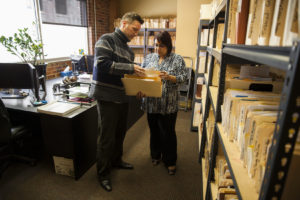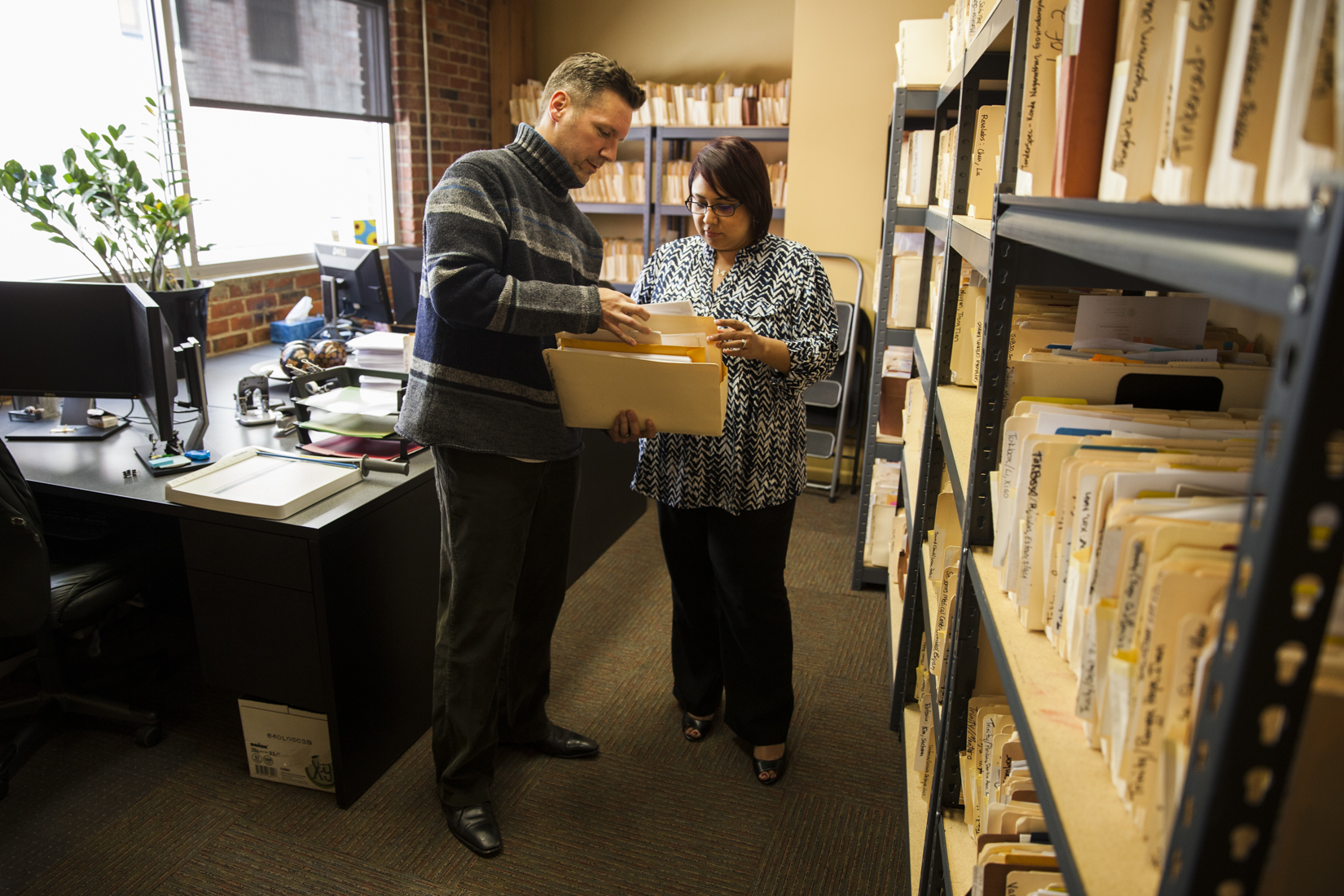June is Immigrant Heritage Month. Throughout the month, we’ll be celebrating both our diversity and our shared American heritage by telling the stories of individuals that, together, comprise a uniquely American narrative.
“A lot of people don’t realize what others sacrifice to come here. They don’t always come because they are poor or need a job. Like my dad, he was a professional in Mexico, never worked a day in his life in the fields or in manufacturing. And then he came here and had to work in a bean packing plant, minimum wage, for years. The blow to his pride was immense. But, he was willing to do anything for the success of his family.”
David’s story:
 My father is from the Ukraine; he immigrated after World War II to Canada and made his way to a refugee settlement camp. So I was born and raised in Canada, it’s where my mother is from. We had a lot of the same television shows that Americans watch but we also had a lot of homegrown talent that we are proud of. When Brian Adams won some sort of award we would always root for the Canadians, the John Candy’s and Jim Carrey’s of the world.
My father is from the Ukraine; he immigrated after World War II to Canada and made his way to a refugee settlement camp. So I was born and raised in Canada, it’s where my mother is from. We had a lot of the same television shows that Americans watch but we also had a lot of homegrown talent that we are proud of. When Brian Adams won some sort of award we would always root for the Canadians, the John Candy’s and Jim Carrey’s of the world.
I went to the University of Toronto for my undergrad and University of Windsor for Law School. I came to the U.S. in 2000. I had met a gal in California. We met at the right time and got engaged. I moved down here to Lincoln and got a new job.
I practice immigration law. I give someone hope and a future here in the United States. I have not yet met anyone who is not excited to become a U.S. citizen. To me, it is a great benefit and exciting opportunity. We do our best to try to work with people who are doing it the right way and at the same time call the government on mistakes that they make. The majority of what we do is business-related, a lot of people from Europe and Canada, entrepreneurs who want to set up shop here. And when they come they don’t want to leave. So that is the next step to try to help them with business visas.
Immigration is a hot button topic in the press but it is one of these issues where you are often taken advantage of if you are undocumented. It is much easier for somebody like me because of the NAFTA agreement and the similar cultural experiences. If my wife and I came from a different culture, if I was Latino or Chinese for example, I would expect to be asked a lot more questions in an interview than I personally received. At times I think there is an institutional bias that people see a certain type of skin color and feel like they have to look out for something.
The funny thing is that when I was a kid I wanted to be Prime Minister of Canada. I was very happy in Canada. The issue with me was that I just hadn’t found the right person, and I happened to find her while on vacation in California. She was in school and really there was not a comparable program in Canada. And here I was studying U.S. immigration law in Canada, and it was a perfect opportunity to make the move. I feel like my opinion is valid now that I’m a U.S. citizen. I can vote and I can have an opinion on what this country does in the world. Before it was always “Well you Americans think this or that.” This is my country now. It feels good, it is a source of pride.
Jezharela’s story:
I was born in Tijuana, Mexico. I got to the United States when I was seven. I have three siblings who are deaf, so my parents wanted to give them a better education — one that we could only get in America. We moved to Nebraska when I was seven. My brothers didn’t understand much of what was going on. We left our dog behind, and I cried when we crossed the border. I never went back. The different culture and language was a big adjustment. I consider the United States my home, but I still feel like a piece is missing. That deep connection I have to some other place is difficult to explain. Here it feels like some place I was brought to and just had to deal with. We have done well, but in the back of my mind I still wonder what would have happened if I had stayed.
I work in immigration today interestingly enough. For professionals there is a way in, for normal people not so much. A lot of people don’t realize what others sacrifice to come here. They don’t always come because they are poor or need a job. Like my dad, he was a professional in Mexico, never worked a day in his life in the fields or in manufacturing. And then he came here and had to work in a bean-packing plant, minimum wage for years. The blow to his pride was immense. But, he was willing to do anything for the success of his family.
My father is a pastor of a Spanish speaking church here in Lincoln. When I graduated from high school with honors, I couldn’t get scholarships. I often wonder if I had gotten them, where I would be now. It feels like this barrier that has been in my life for a very long time. People just do not understand these barriers.
Imagine how much greatness people could contribute not only to the country, but to the world with the proper opportunities. And this is all through no fault of our own by the way. I was brought here, I didn’t choose it. I thought about going back, but I never had a driver’s license, I never had anything there so to the Mexican government I am basically dead.

